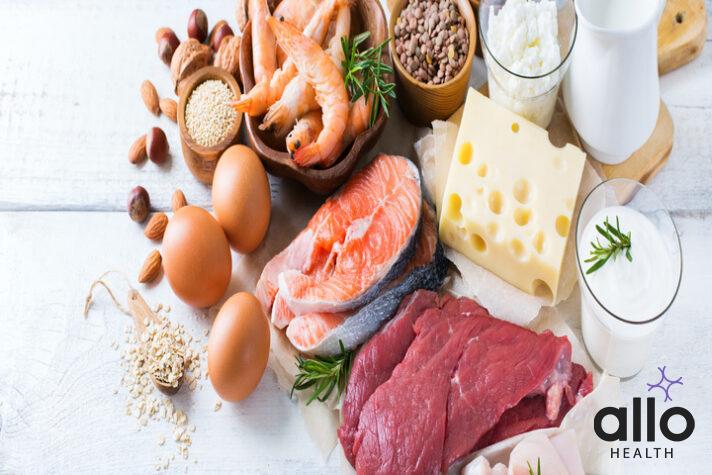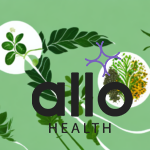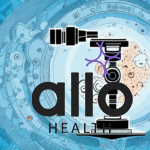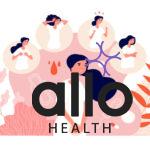10 Foods For Testicular Health

Allo Health is dedicated to personalized well-being, offering support and trusted information tailored to individual health goals. The platform emphasizes human-generated content, led by a distinguished medical team of experts, including physicians and sexual health specialists. Their commitment to credibility involves rigorous fact-checking, authoritative research, and continuous updates to ensure accurate, up-to-date information. Allo Health's unique approach goes beyond conventional platforms, providing expert-led insights and a continuous commitment to excellence, with user feedback playing a crucial role in shaping the platform's authoritative voice.

Dr. Aswathi P T earned her MBBS degree and completed her internship at Government Medical College, Kozhikode, and possess diverse professional background spanning 3.5 years. Her experience includes a wide range of healthcare settings, including health centers, hospitals, and teleconsultation services.
Why This Was Upated?
Our experts continually monitor the health and wellness space, and we update our articles when new information became available.
Updated on 21 November, 2023
- Article was updated as part of our commitment to diversity, equity, and inclusion.
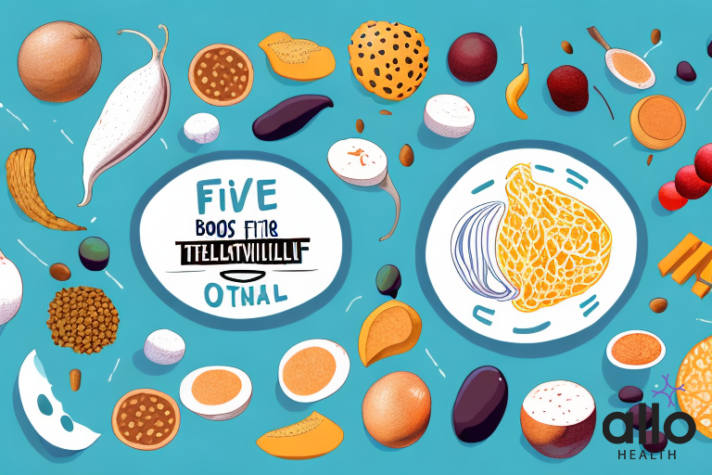
"The following blog article discusses food and diet-related information for general educational purposes. However, it is important to note that the information provided is not intended as personalized dietary advice and should not be considered a substitute for professional guidance from a registered dietitian or qualified healthcare professional. Before making any significant changes to your diet or nutrition plan, it is recommended to consult with a registered dietitian or healthcare professional.
Book consultation
Dietary changes can have a significant impact on your overall health and well-being. It is important to approach any changes to your diet in a balanced and sustainable manner, ensuring that you meet your nutritional needs and avoid any potential nutrient deficiencies. Rapid or extreme changes in dietary patterns can be detrimental to your health and may require professional guidance.
It is crucial to note that any specific dietary recommendations or guidelines mentioned in this article may not be appropriate for individuals with specific medical conditions, allergies, or intolerances. A registered dietitian or healthcare professional can provide individualized advice, including modifications or alternative food choices to accommodate your unique circumstances.
The information provided in this article may not encompass all possible dietary considerations or account for the latest research and nutritional guidelines."
Maintaining testicular health is essential for men, but it can often be overlooked. From the importance of testicular health to the anatomy of the testicles and common concerns, we will explore everything you need to know about testicular health. We will delve deep into how nutritional support can help maintain healthy testicles, including the top seven foods to incorporate into your diet. Additionally, we will highlight other lifestyle habits that can affect testicular health, and the role of supplements and vitamins. Lastly, we will explore best practices for self-exams and regular check-ups, and advancements in research for testicular health.
What Is The Importance Of Testicular Health?
Testicular health is a crucial aspect of overall well-being for men. The testes, or testicles, are the male reproductive organs responsible for producing sperm and testosterone, the primary male sex hormone. Maintaining testicular health is essential for several reasons:
- Reproductive Health:
- Sperm Production: Testes produce sperm cells, which are necessary for reproduction. Healthy testes ensure the production of viable and motile sperm, increasing the chances of fertility.
- Fertility: Proper testicular function is vital for couples trying to conceive. Male infertility, often related to concerns with the testes, accounts for a significant portion of fertility concerns in couples.
- Hormonal Balance:
- Testosterone Production: Testes produce testosterone, a hormone that plays a crucial role in the development of male reproductive tissues, such as the testes and prostate, as well as promoting secondary sexual characteristics like increased muscle mass, bone density, and body hair.
- Libido and Sexual Function: Testosterone levels influence sexual desire (libido) and erectile function. Healthy testes contribute to a satisfying sex life and overall sexual well-being.
- Overall Health:
- Bone Health: Testosterone helps maintain bone density. Healthy testicular function can contribute to strong bones and reduce the risk of osteoporosis.
- Muscle Mass: Testosterone is essential for building and maintaining muscle mass. Proper testicular function supports muscle strength and physical performance.
- Mood and Energy: Imbalances in testosterone levels can affect mood, energy levels, and overall motivation. Healthy testes contribute to emotional well-being and vitality.
- Early Detection of Health Concerns:
- Testicular Cancer: Testicular cancer is the most common cancer in young men. Regular self-examinations of the testes can help in the early detection of lumps or abnormalities, improving the chances of successful treatment.
- Other Health Conditions: Changes in the testes can sometimes indicate underlying health concerns, such as infections or hormonal imbalances. Monitoring testicular health can lead to the early diagnosis and treatment of these conditions.
- Psychological and Emotional Well-being:
- Self-Esteem: For many men, a sense of masculinity and self-esteem is associated with their reproductive and sexual health. Healthy testes can positively influence self-confidence and self-image.
- Intimate Relationships: Sexual health and fertility can impact intimate relationships. Addressing testicular health concerns can lead to improved communication and understanding between partners.
- Preventive Health Care:
- Regular Check-ups: Periodic medical check-ups, including testicular examinations, can help identify any concerns early and facilitate prompt medical intervention if necessary.
- Healthy Lifestyle: Maintaining a healthy lifestyle, including regular exercise, balanced nutrition, and avoiding smoking and excessive alcohol consumption, contributes to overall testicular health.
Testicular health is vital for reproductive function, hormonal balance, overall well-being, and early detection of potential health concerns. Men are encouraged to be aware of their testicular health, perform regular self-examinations, and seek medical advice if they notice any abnormalities or concerns. Regular check-ups with healthcare providers can also aid in the maintenance of testicular health and overall quality of life.
Diet’s Role In Testicular Health
Diet plays a significant role in overall health, including the health of the testicles. A balanced and nutritious diet can support the proper functioning of the testes, ensuring the production of sperm and hormones. Here’s how diet influences testicular health in detail:
Nutrients that Support Testicular Health:
- Proteins: Proteins are essential for the production of hormones, including testosterone. Sources of high-quality protein such as lean meats, fish, eggs, dairy, and plant-based options like beans and tofu are important for testicular health.
- Healthy Fats: Healthy fats, especially omega-3 fatty acids found in fish, flaxseeds, and walnuts, support hormonal function and overall cell health, including the cells in the testes.
- Antioxidants: Antioxidants protect cells from damage, including the cells in the testes. Fruits and vegetables, particularly those rich in vitamins C and E, such as citrus fruits, berries, and spinach, are high in antioxidants.
- Zinc: Zinc is a mineral crucial for sperm production and testosterone levels. Foods rich in zinc include nuts, seeds, legumes, and whole grains. Seafood, especially oysters, is also a great source of zinc.
- Vitamins: Certain vitamins, such as vitamin D, are associated with testosterone levels. Vitamin D is synthesized in the body through sunlight exposure and is also found in fortified foods and fatty fish. Vitamin A, found in carrots, sweet potatoes, and spinach, is important for sperm production.
Fertility-Boosting Foods:
- Folate: Found in leafy green vegetables and legumes, folate is linked to higher sperm counts. It’s essential for men looking to father children.
- Lycopene: Lycopene, found in tomatoes and watermelon, is an antioxidant associated with improved sperm quality.
- Selenium: Selenium-rich foods like Brazil nuts and fish are important for maintaining healthy sperm and testosterone levels.
Maintaining a Healthy Weight:
Being overweight can lead to hormonal imbalances, including lowered testosterone levels. A balanced diet that helps maintain a healthy weight is crucial for overall hormonal health, including testicular function.
Hydration:
Staying well-hydrated is vital for overall health, including reproductive health. Dehydration can lead to a decrease in sperm quality and production.
Limiting Harmful Substances:
- Alcohol: Excessive alcohol consumption can lower testosterone levels. Moderation is key.
- Caffeine: While moderate caffeine intake is generally safe, excessive caffeine can lead to dehydration, which can affect sperm health.
- Processed Foods and Sugars: Diets high in processed foods and sugars are linked to obesity and inflammation, which can negatively impact hormonal balance.
- Soy Products: Some studies suggest that high consumption of soy-based products might interfere with hormonal balance in men. While more research is needed, it might be wise to moderate soy intake.
Special Considerations:
- Vegetarian and Vegan Diets: Individuals on plant-based diets need to ensure they are getting adequate protein, vitamin B12, zinc, and omega-3 fatty acids, which are often found in animal products. Supplements or fortified foods might be necessary.
- Allergies and Sensitivities: Food allergies or sensitivities can lead to inflammation in the body, potentially affecting hormonal balance. Managing these conditions through dietary changes can be beneficial.
A well-balanced diet rich in nutrients, antioxidants, and healthy fats, along with maintaining a healthy weight and lifestyle, can positively influence testicular health. However, individual dietary needs can vary, so it’s advisable to consult with a healthcare provider or a registered dietitian for personalized dietary recommendations, especially if there are specific concerns about testicular health or fertility.
10 Foods For Testicular Health
Here are ten foods that can contribute to testicular health, promoting proper function and overall well-being in detail:
Fish:
- Why it’s good: Fatty fish like salmon, mackerel, and trout are rich in omega-3 fatty acids. These healthy fats support blood flow, which is essential for reproductive health. They also contain selenium, a mineral important for sperm quality.
- How to consume: Include grilled or baked fish in your diet at least twice a week.
Nuts and Seeds:
- Why they’re good: Nuts, such as almonds and walnuts, and seeds like flaxseeds and pumpkin seeds, are excellent sources of healthy fats, protein, and zinc. Zinc is vital for testosterone production and sperm health.
- How to consume: Snack on a handful of mixed nuts or sprinkle seeds on salads and yogurt.
Leafy Green Vegetables:
- Why they’re good: Vegetables like spinach and kale are rich in folate, a B-vitamin linked to higher sperm counts. They are also packed with antioxidants, which protect cells from damage.
- How to consume: Add spinach and kale to smoothies, salads, or stir-fries.
Citrus Fruits:
- Why they’re good: Oranges, grapefruits, and other citrus fruits are high in vitamin C, an antioxidant that helps improve sperm motility and viability.
- How to consume: Eat citrus fruits whole or drink fresh, unsweetened juices.
Berries:
- Why they’re good: Berries like blueberries, strawberries, and raspberries are rich in antioxidants, including vitamin C and flavonoids, which support overall cell health, including sperm cells.
- How to consume: Eat them fresh, add to yogurt, or blend into smoothies.
Oysters:
- Why they’re good: Oysters are one of the best food sources of zinc, a mineral crucial for sperm production and testosterone levels.
- How to consume: Enjoy oysters raw, grilled, or cooked in various recipes.
Tomatoes:
- Why they’re good: Tomatoes contain lycopene, a powerful antioxidant associated with improved sperm quality and motility.
- How to consume: Eat fresh tomatoes in salads or sandwiches, or enjoy cooked tomato-based sauces and soups.
Avocado:
- Why it’s good: Avocado is rich in healthy monounsaturated fats, which support overall cardiovascular health, ensuring proper blood flow to the reproductive organs.
- How to consume: Spread avocado on toast, add it to salads, or make guacamole.
Lean Meats:
- Why they’re good: Lean meats such as chicken and turkey are high-quality protein sources. Protein is essential for the production of hormones, including testosterone.
- How to consume: Grill, bake, or roast lean meats for a healthy protein source.
Dark Chocolate:
- Why it’s good: Dark chocolate contains flavonoids, which are antioxidants that may improve sperm quality. It also contains L-arginine, an amino acid that can increase semen volume and sperm count.
- How to consume: Choose dark chocolate with a cocoa content of 70% or higher and consume in moderation.
Incorporating these foods into a balanced diet can contribute to better testicular health. Remember, individual dietary needs can vary, so it’s essential to maintain a diverse and balanced diet and consult with a healthcare provider or a registered dietitian for personalized dietary recommendations, especially if you have specific concerns about testicular health or fertility.
Frequently Asked Questions
(1) What arе thе bеst foods for tеsticular hеalth?
To support tеsticular hеalth, focus on foods rich in nutriеnts likе zinc, found in nuts and sееds, and antioxidants likе vitamin C in citrus fruits and bеrriеs. Includе fish for omеga-3 fatty acids and lеan mеats for quality protеin. Thеsе foods promotе spеrm production and hormonе balancе.
(2) How doеs zinc contributе to tеsticular hеalth?
Zinc is a crucial minеral for tеsticular hеalth as it plays a vital rolе in spеrm production and tеstostеronе lеvеls. Foods likе oystеrs, nuts, and lеgumеs arе rich in zinc. Adеquatе zinc intakе еnsurеs propеr functioning of thе tеstеs, supporting ovеrall rеproductivе hеalth.
(3) Why arе antioxidants important for tеsticular hеalth?
Antioxidants, found in fruits likе tomatoеs and bеrriеs, protеct tеsticular cеlls from damagе. Thеy boost spеrm quality and motility, еnhancing fеrtility. Vitamin C, E, and lycopеnе arе powеrful antioxidants that safеguard rеproductivе cеlls, еnsuring optimal tеsticular hеalth.
(4) What rolе do omеga-3 fatty acids play in tеsticular hеalth?
Omеga-3 fatty acids, prеvalеnt in fish likе salmon and flaxsееds, support blood flow to thе tеstеs. This improvеd circulation еnsurеs thе dеlivеry of nutriеnts and oxygеn, aiding in propеr tеsticular function. Including thеsе hеalthy fats in your diеt promotеs rеproductivе wеll-bеing.
(5) Can dark chocolatе rеally bеnеfit tеsticular hеalth?
Yеs, dark chocolatе can bеnеfit tеsticular hеalth. It contains flavonoids, antioxidants that еnhancе spеrm quality. Additionally, dark chocolatе includеs L-argininе, an amino acid associatеd with incrеasеd sеmеn volumе and spеrm count. Use dark chocolatе with highеr cocoa contеnt for thеsе hеalth bеnеfits.

